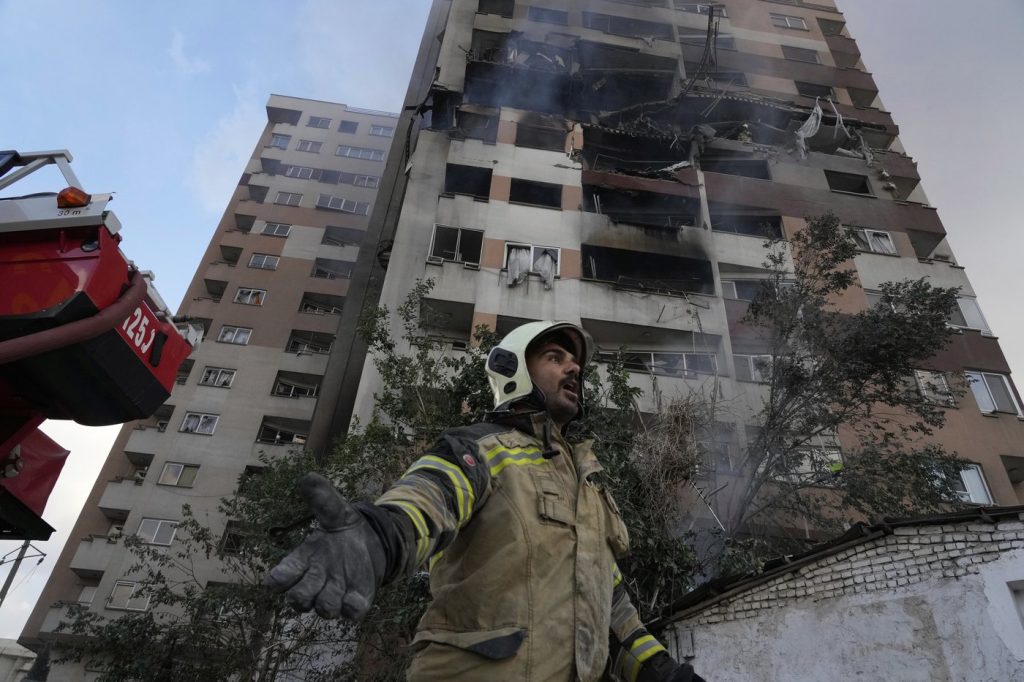DUBAI, United Arab Emirates (AP) — In a dramatic escalation of tensions in the Middle East, Israel launched significant airstrikes on Iran's capital early Friday, reportedly targeting the country’s nuclear program. These strikes resulted in the deaths of at least two high-ranking military officials, including the leader of Iran's paramilitary Revolutionary Guard, Gen. Hossein Salami, and the chief of staff of Iranian armed forces, Gen. Mohammad Bagheri. The attack occurred during a particularly volatile period of negotiations regarding Iran's nuclear advancements and raised severe concerns about the potential for an all-out war between the longtime adversaries.
The airstrikes, categorized as Israel's most substantial military engagement with Iran since the Iran-Iraq War in the 1980s, hit several key sites, including Iran's main nuclear enrichment facility. Eyewitness accounts reported visible black smoke rising from the locations that were struck, indicating the scale of the assault.
Iran's Supreme Leader, Ayatollah Ali Khamenei, responded to the attacks with vows of "severe punishment" directed towards Israel, underscoring the potential for swift retaliation. The Israeli government framed the strikes as an essential measure for national survival, asserting that they were crucial to preempting an imminent threat posed by Iran's potential development of nuclear weapons. Israeli Prime Minister Benjamin Netanyahu reinforced this narrative, stating the urgency in removing what he described as a clear and present danger to Israel's existence.
In the lead-up to the attack, the Trump administration, while cautioning Israel against any military action during ongoing negotiations regarding Iran's nuclear program, claimed it was not involved in the airstrikes. However, U.S. officials had recently taken precautionary measures, such as withdrawing some diplomats from Iraq and offering to evacuate families of American troops in the region, indicating anticipation of potential conflict escalation. Secretary of State Marco Rubio remarked that Israel took unilateral action under self-defense pretexts, ensuring the U.S. commitment to protect its forces in the area.
Following the missile strikes, widespread disruptions were evident, with both Israel's main airport closing and a significant spike in Brent crude oil prices, which rose by nearly 8% amid fears of impending conflict. Israel’s Defense Minister, Israel Katz, warned citizens of expected missile and drone attacks in response to the Israeli strikes, underscoring the heightened risk to the Israeli populace.
Despite the attacks, the exact nature of the Israeli forces' operations remained uncertain. It has yet to be clarified whether Israeli jets entered Iranian airspace or launched standoff missiles over neighboring territories, although reports indicated that residents in Iraq heard fighter jets at the time.
The Israeli government characterized the strikes as a preemptive action against imminent threats, and Netanyahu expressed the determination to continue military operations as necessary. Nevertheless, analysts have noted that should Iranian retaliation result in significant Israeli casualties, public sentiment towards the government's actions could change dramatically.
Meanwhile, the attack has had broader implications, impacting diplomatic and military considerations in the region. As the world holds its breath, eyes remain on the potential for Iranian responses, which could include targeted retaliatory strikes. Khamenei's passionate rhetoric following the strikes suggests that Iran may mobilize its allies and resources to respond decisively against Israel's actions.
This event marks a critical juncture in the longstanding conflict between Israel and Iran, with fears of a larger military confrontation looming amidst the tense geopolitical climate.










